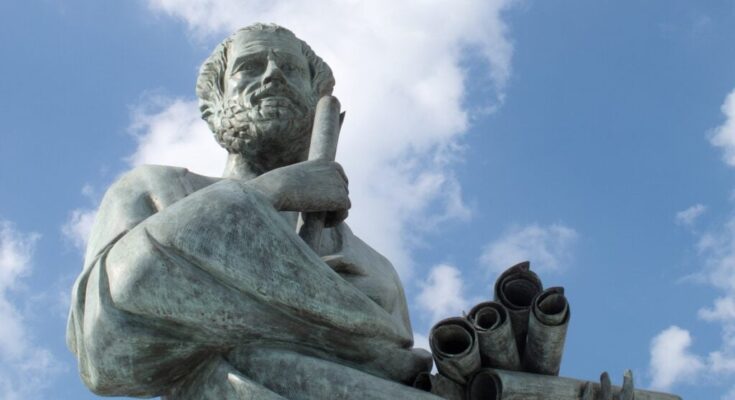
Aristotle’s sayings on tyranny ring true today, allowing people to recognize tyranny if they know what to look for.
Over 2,300 years ago, the ancient Greek philosopher Aristotle wrote extensively on the hallmarks of tyranny. The philosopher was highly knowledgeable on the topic, having known multiple tyrants himself. He had witnessed the end of the reign of the 30 tyrants, saw Greek democracy in full effect, and had a close relationship with the tyrant Hermias of Atarneus later in life.
Aristotle lived from 384 to 322 BC and was born in northeastern Greece in a town called Stagira. At 17, the ancient Greek philosopher was sent to train under another great philosopher in Athens, Plato. Aristotle contributed to many fields, such as politics, physics, and biology, and even tutored Alexander the Great.
What is tyranny?
As one of the greatest political thinkers ever to walk the earth, Aristotle recognized tyranny as its own form of governance. While a tyrant and a king are singular and absolute rulers, a tyrant misuses the significant amount of power given to them.
The ancient Greek philosopher particularly emphasized that a tyrant works towards his benefit while a king or other forms of government work for the welfare of the people. A king might also abdicate the throne if the people wish them gone, while a tyrant will remain on the throne by any means necessary.
Aristotle recognized tyranny as a corruption of existing government forms, especially democracies and oligarchies. The great philosopher claimed that tyranny takes the concentration of wealth that oligarchies have and the dismissal of traditions and laws that democracies have.
“Tyranny is a compound of oligarchy and democracy in their most extreme forms, and is therefore most injurious to its subjects,” said Aristotle in his work titled Politics.
According to Aristotle, tyrants tend to rise from the lower ranks of people. Usually, a tyrant will rise from the bottom, claiming to have the people’s concerns and best interests at heart. When the tyrant takes power, however, he quickly works to consolidate power for himself through any means necessary.
“The appointment of a king is the resource of the better classes against the people, and he is elected by them out of their own number, because either he himself or his family excel in virtue and virtuous actions; whereas a tyrant is chosen from the people to be their protector against the notables, and in order to prevent them from being injured,” said Aristotle.
Recognizing a tyrant
A tyrant does not come from a good and happy country. A tyrant will almost always rise from political turmoil and civil unrest. If a government is unstable and its people are unhappy, a tyrant is more likely to wait in the ranks to seize their opportunity and grasp power.
Recognizing tyranny means recognizing a nation’s deeper institutional and societal issues. Tyranny can be the byproduct of political dysfunction, economic disparities, and the current government’s failure to execute its governance duties.
Though the people look to the tyrant they helped place in power to save them, they ultimately never will. A tyrant only serves themselves and will make the people poor in the process. They will drain their subjects until they can do nothing to resist their rule.
“Tyrants make their subjects poor so that they are occupied with their daily tasks and have no time to plot,” said Aristotle. “Tyrants have no regard for any public interest except as conducive to their private ends.”
A tyrant might rise from the ranks of ordinary people or a position of lesser power within the current government. Typically, this person will be highly vocal about the state’s current issues. The tyrant-to-be will also claim that they are on the people’s side and that they are champions of the common person’s needs and wants. Once tyrants are in power, they make sure to mercilessly hold on to it despite the costs to the society.



